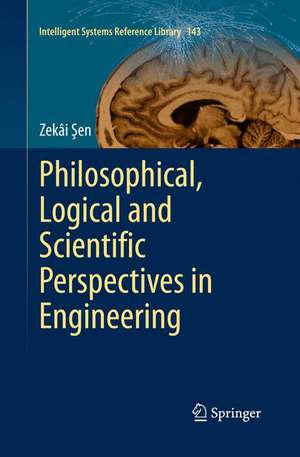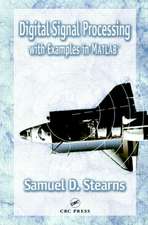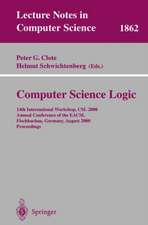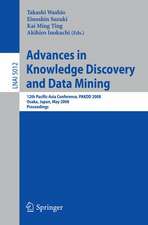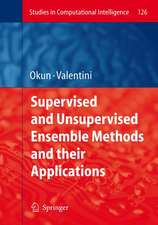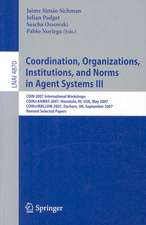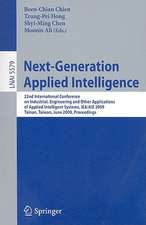Philosophical, Logical and Scientific Perspectives in Engineering: Intelligent Systems Reference Library, cartea 143
Autor Zekâi Şenen Limba Engleză Hardback – 23 sep 2013
| Toate formatele și edițiile | Preț | Express |
|---|---|---|
| Paperback (1) | 644.33 lei 43-57 zile | |
| Springer International Publishing – 23 aug 2016 | 644.33 lei 43-57 zile | |
| Hardback (1) | 650.59 lei 43-57 zile | |
| Springer International Publishing – 23 sep 2013 | 650.59 lei 43-57 zile |
Din seria Intelligent Systems Reference Library
- 20%
 Preț: 1050.59 lei
Preț: 1050.59 lei - 20%
 Preț: 1157.60 lei
Preț: 1157.60 lei - 20%
 Preț: 648.44 lei
Preț: 648.44 lei - 20%
 Preț: 650.08 lei
Preț: 650.08 lei - 20%
 Preț: 1005.64 lei
Preț: 1005.64 lei - 5%
 Preț: 968.90 lei
Preț: 968.90 lei - 20%
 Preț: 1052.67 lei
Preț: 1052.67 lei - 20%
 Preț: 1171.46 lei
Preț: 1171.46 lei - 20%
 Preț: 1164.84 lei
Preț: 1164.84 lei - 20%
 Preț: 815.84 lei
Preț: 815.84 lei - 20%
 Preț: 989.96 lei
Preț: 989.96 lei - 20%
 Preț: 1063.41 lei
Preț: 1063.41 lei - 20%
 Preț: 925.45 lei
Preț: 925.45 lei - 20%
 Preț: 504.38 lei
Preț: 504.38 lei - 18%
 Preț: 1113.26 lei
Preț: 1113.26 lei - 20%
 Preț: 1920.04 lei
Preț: 1920.04 lei - 20%
 Preț: 990.62 lei
Preț: 990.62 lei - 20%
 Preț: 651.57 lei
Preț: 651.57 lei - 20%
 Preț: 645.97 lei
Preț: 645.97 lei - 20%
 Preț: 660.16 lei
Preț: 660.16 lei - 20%
 Preț: 647.13 lei
Preț: 647.13 lei - 20%
 Preț: 654.05 lei
Preț: 654.05 lei - 20%
 Preț: 649.93 lei
Preț: 649.93 lei - 20%
 Preț: 648.11 lei
Preț: 648.11 lei - 20%
 Preț: 657.99 lei
Preț: 657.99 lei - 20%
 Preț: 656.84 lei
Preț: 656.84 lei - 20%
 Preț: 1624.04 lei
Preț: 1624.04 lei - 20%
 Preț: 642.98 lei
Preț: 642.98 lei - 20%
 Preț: 649.60 lei
Preț: 649.60 lei - 20%
 Preț: 651.23 lei
Preț: 651.23 lei - 20%
 Preț: 653.06 lei
Preț: 653.06 lei - 20%
 Preț: 1002.99 lei
Preț: 1002.99 lei - 20%
 Preț: 645.14 lei
Preț: 645.14 lei - 20%
 Preț: 658.33 lei
Preț: 658.33 lei - 20%
 Preț: 644.98 lei
Preț: 644.98 lei - 20%
 Preț: 646.62 lei
Preț: 646.62 lei
Preț: 650.59 lei
Preț vechi: 813.24 lei
-20% Nou
Puncte Express: 976
Preț estimativ în valută:
124.53€ • 135.31$ • 104.67£
124.53€ • 135.31$ • 104.67£
Carte tipărită la comandă
Livrare economică 21 aprilie-05 mai
Preluare comenzi: 021 569.72.76
Specificații
ISBN-13: 9783319017419
ISBN-10: 3319017411
Pagini: 200
Ilustrații: XI, 260 p. 71 illus.
Dimensiuni: 155 x 235 x 25 mm
Greutate: 0.56 kg
Ediția:2014
Editura: Springer International Publishing
Colecția Springer
Seria Intelligent Systems Reference Library
Locul publicării:Cham, Switzerland
ISBN-10: 3319017411
Pagini: 200
Ilustrații: XI, 260 p. 71 illus.
Dimensiuni: 155 x 235 x 25 mm
Greutate: 0.56 kg
Ediția:2014
Editura: Springer International Publishing
Colecția Springer
Seria Intelligent Systems Reference Library
Locul publicării:Cham, Switzerland
Public țintă
ResearchCuprins
Introduction.- Intelligent Reasoning Elements.- Philosophy and Engineering .- Logic and Engineering.- Science and Engineering.- Education and Engineering.- Future Trends.
Notă biografică
Prof. Zekâi Şen is a researcher at the Civil Engineering Faculty, Istanbul Technical University, Turkey. He has worked in various countries and in different faculties, such as earth sciences, hydrogeology, astronautics and aeronautics, and meteorology. His main interests are hydrology, water resources, hydrogeology, hydrometeorology, hydraulics, philosophy of science, and history, and he has acted as a national and international consultant on water resources, renewable energy alternatives, earthquake engineering, earth sciences, and similar projects. Prof. Sen has written several in English: Wadi Hydrology (2008, CRC Lewis Publishers), Solar Energy Fundamentals and Modeling Techniques (2008, Springer), Spatial Modeling Principles in Earth Sciences (2009, Springer). He is the recipient of various national and international scientific prizes, including from the Science and Technology Center of Turkey and King Abdulaziz University, Saudi Arabia; from 2002 to 2007 he contributed to the IPCC, a period that culminated in the award of the Nobel Peace Prize to the IPCC.
Textul de pe ultima copertă
This book highlights and explains the significance of philosophical, logical, and scientific principles for engineering education/training and engineering works. In so doing, it aims to help to rectify the neglect of philosophy and logic in current education and training programs, which emphasize analytical and numerical methods at the expense of the innovative practical and creative abilities so important for engineering in the past. Individual chapters examine the relation of philosophy, logic, and science to engineering, drawing attention to, for example, the significance of ethics, the relevance of the philosophy of science, and the increasing importance of application of fuzzy logic to engineering. Modeling principles and philosophy in engineering are discussed, and the impact of different education systems, examined. Too often engineers have become reliant on readily available formulations and software; this book offers an antidote, promoting the recognition of artistic and humanitarian aspects and their integration in engineering works.
Caracteristici
Stimulating examination of the significance of philosophical, logical, and scientific principles for engineering education/training and engineering works Examines the role of philosophy and logic in engineering education/training Promotes the integration of artistic and humanitarian aspects in engineering works
